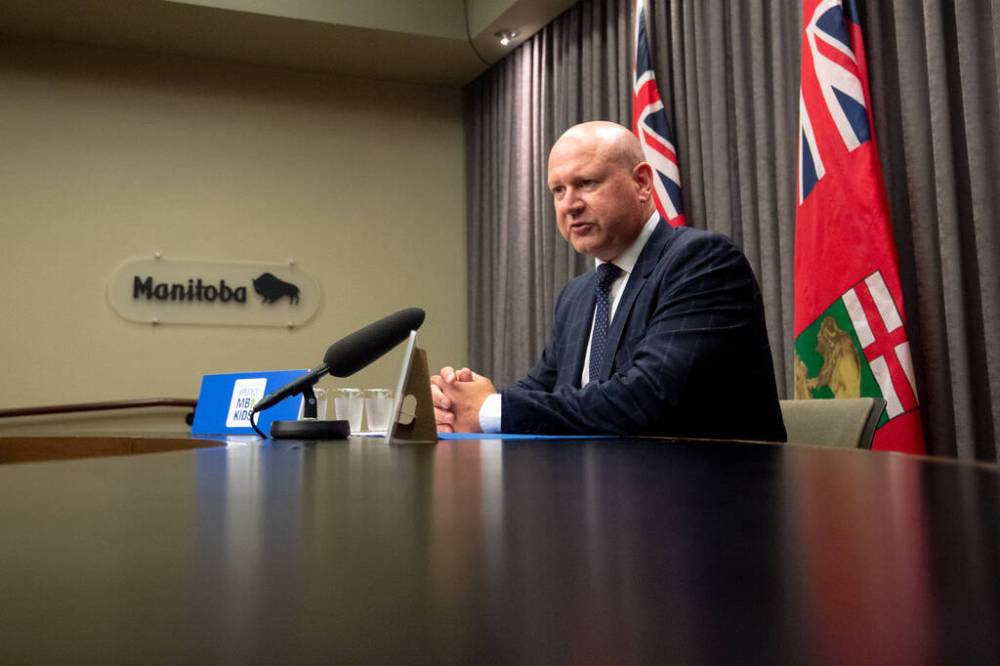Flu kills 17 Manitobans in 2022
Advertisement
Read this article for free:
or
Already have an account? Log in here »
To continue reading, please subscribe:
Monthly Digital Subscription
$0 for the first 4 weeks*
- Enjoy unlimited reading on winnipegfreepress.com
- Read the E-Edition, our digital replica newspaper
- Access News Break, our award-winning app
- Play interactive puzzles
*No charge for 4 weeks then price increases to the regular rate of $19.00 plus GST every four weeks. Offer available to new and qualified returning subscribers only. Cancel any time.
Monthly Digital Subscription
$4.75/week*
- Enjoy unlimited reading on winnipegfreepress.com
- Read the E-Edition, our digital replica newspaper
- Access News Break, our award-winning app
- Play interactive puzzles
*Billed as $19 plus GST every four weeks. Cancel any time.
To continue reading, please subscribe:
Add Free Press access to your Brandon Sun subscription for only an additional
$1 for the first 4 weeks*
*Your next subscription payment will increase by $1.00 and you will be charged $16.99 plus GST for four weeks. After four weeks, your payment will increase to $23.99 plus GST every four weeks.
Read unlimited articles for free today:
or
Already have an account? Log in here »
Hey there, time traveller!
This article was published 13/12/2022 (1089 days ago), so information in it may no longer be current.
Seventeen Manitobans have died of the flu so far this year, including one young person under the age of 18.
Chief provincial public health officer Dr. Brent Roussin confirmed the number of lives lost Tuesday, saying “we need to be aware that these respiratory virus seasons are typically quite severe.”
In 2017, 46 Manitobans died of the flu, but that was considered a “dramatic underestimate” because fewer people were tested for influenza compared to this winter, Roussin said. He cautioned that people may perceive flu as being a lower risk because it’s more commonly known, whereas COVID-19 caused high alarm when it emerged as a new coronavirus nearly three years ago.

Dr. Brent Roussin cautioned that people may perceive flu as being a lower risk because it’s more commonly known, whereas COVID-19 caused high alarm when it emerged as a new coronavirus nearly three years ago. (Mike Sudoma / Free Press files)
Provincial data hasn’t caught up to the demand for flu testing. There’s a data entry backlog in flu case reporting that the province’s latest epidemiological report noted was expected to be cleared by the next reporting date later this week.
This strain is causing the most serious illness in seniors and in babies and children younger than five.
Donna Cantiveros was among the Manitoba mothers making an emergency room visit for her child earlier this month. Her five-year-old son Lorenzo complained of a stomach ache when he got home from daycare on Dec. 1.
High fever, vomiting, and loss of appetite followed.
Cantiveros called Healthlinks and was told to take her son to emergency or urgent care if his vomiting and signs of dehydration continued. They did, so Cantiveros took Lorenzo to the Children’s Hospital emergency department that Saturday.
They waited more than three hours and saw a doctor for five minutes, getting a diagnosis the doctor has delivered many times, Cantiveros said.
“It sounded like a templated diagnosis because the doctor said that they have been seeing kids with the same concern and it’s been going around,” she said.
The doctor told her to continue giving her son Pedialyte and water since he couldn’t keep food down. He told her parents commonly worry about their child’s loss of appetite instead of focusing on rehydration.
Cantiveros said she was “relieved,” and grateful to the health-care system; she was happy to wait for as long as it took to make sure her son was going to be OK. Her two-year-old son also suffered flu symptoms but didn’t need to go to the ER.
“As a parent, I have accepted the reality that my kids getting sick is part of growing up and part of parenthood but it is something that parents can never get used to. It is frightening and unsettling,” she said. “But when sickness strikes, acceptance is important because it’s the only way you can deal with the situation properly and sensibly.”
The surge of flu cases across Canada has prompted pediatric health organizations to renew their calls for a national child health framework.
Late last month, the Canadian Paediatric Society, the Canadian Association of Paediatric Nurses, and Children’s Healthcare Canada issued a call to action to governments to address the crisis in children’s health care. Since then, the organizations have had conversations with the federal government about developing and funding a national child-health framework, but they haven’t heard back from premiers, said Emily Gruenwoldt, the Ottawa-based president and CEO of Children’s Healthcare Canada.
Gruenwoldt said they need co-operation from all levels of government.
“Any delays in accessing funds that can help us to address the current crisis, and to plan for the future, is time we’re not going to get back. Every day counts for a child and they cannot wait any longer for intervention, so it’s really disappointing.”
katie.may@winnipegfreepress.com

Katie May is a general-assignment reporter for the Free Press.
Our newsroom depends on a growing audience of readers to power our journalism. If you are not a paid reader, please consider becoming a subscriber.
Our newsroom depends on its audience of readers to power our journalism. Thank you for your support.


